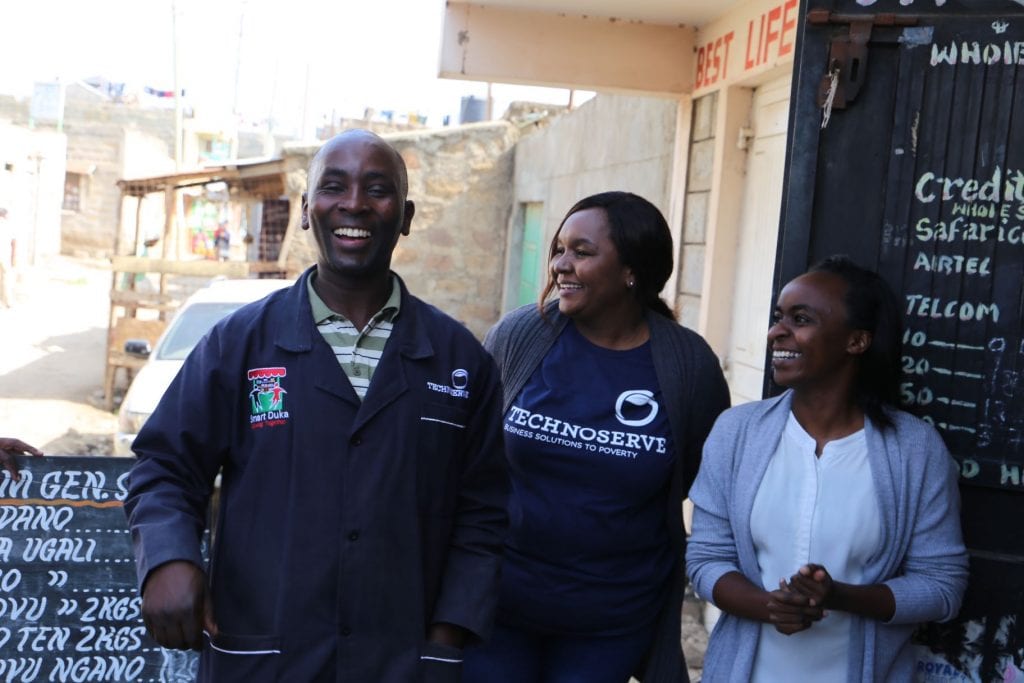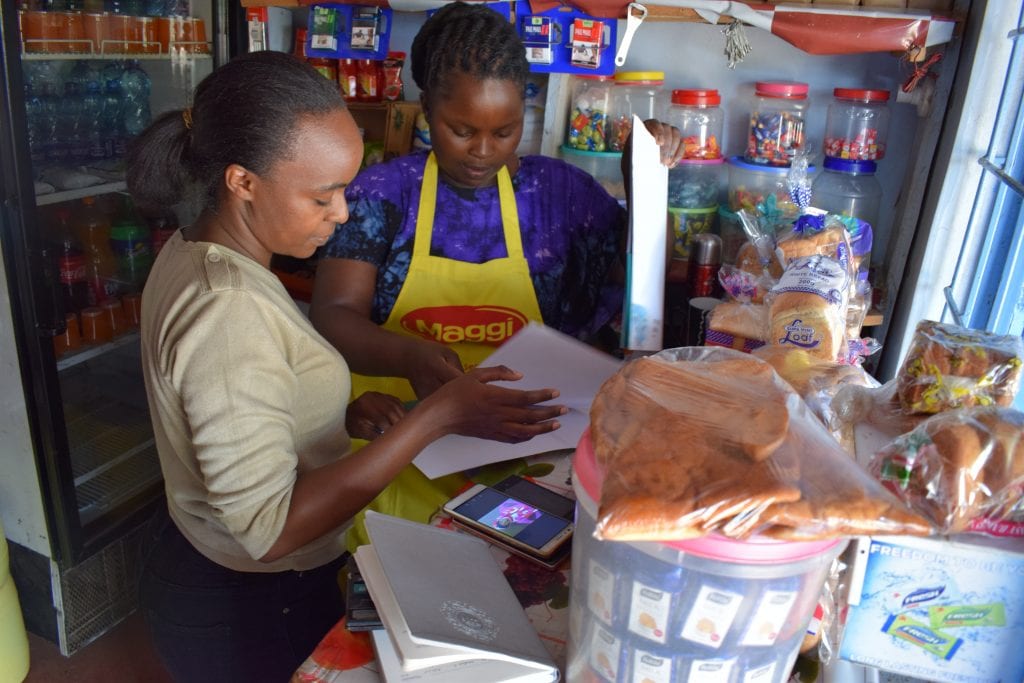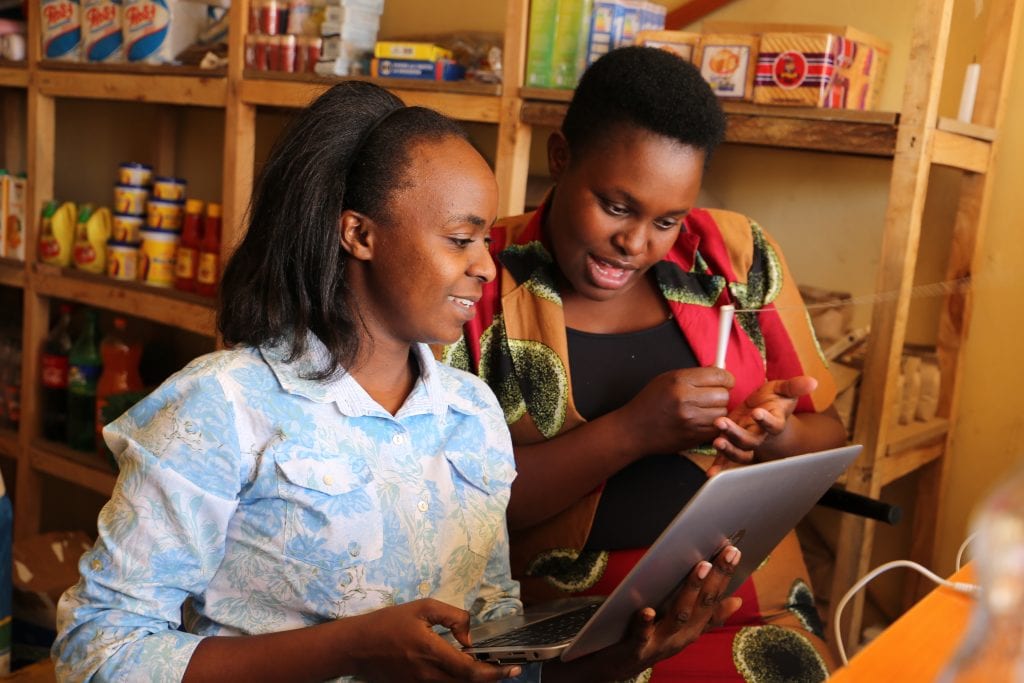A Day in the Life: Supporting Duka Owners in Kenya
The Smart Duka program helps entrepreneurs in Kenya’s micro-retail sector improve the profitability of their shops. Today, we’re sharing a behind-the-scenes look at the daily activities of a TechnoServe business advisor who works on this program.

Elsie Ngina is a business advisor based in Nairobi, Kenya. She works with TechnoServe on the Smart Duka program, a partnership with Moody’s Foundation that supports entrepreneurs in Kenya’s micro-retail sector. Small “mom and pop” retail shops – known as “dukas” – supply almost 80% of Kenya’s consumer goods, but shopkeepers often struggle to make a profit due to limited business skills, poor financial management, and inventory challenges.
Business advisors provide essential individual and group training to duka owners, helping them make small changes in their shops that can dramatically increase their incomes. Below is a glimpse into Elsie’s day as she helps these shopkeepers improve their businesses and their lives.
6:30 a.m. I leave my house to head into the TechnoServe office. The commute usually takes over an hour because of the traffic in Nairobi (but without traffic it is only 20 minutes).
8 a.m. to 9 a.m. When I get to the office, I start by catching up on emails.
9 a.m. to 10 a.m. Once I’ve gone through emails, I review reports and work plans in preparation for my field visits. The weekly reports from field staff update me on program achievements and inform me of any challenges that might need my attention. I also take some time to review the current program activities so I can prepare the necessary materials for the field team. For example, we’ll often need to bring flip charts, handouts, projectors, and other materials to the trainings. I also use this time to monitor the project work plan to make sure we are meeting the necessary deadlines.
10 a.m. After a busy morning reviewing reports, I head out into the field. Most of the shops we support are within 45 minutes of the TechnoServe office.

11 a.m. to 1 p.m. This morning, I’m evaluating the impact of an in-shop advisory session. I follow up with duka owners to make sure they understand the topics we covered in the last session. We do this to make sure we are being as effective as possible with our trainings. Other field visits might focus on evaluating the adoption of best practices from duka owners or facilitating in-shop advisory sessions.
1 p.m. to 1:30 p.m. The team takes a quick break for lunch and discusses what is working well with the program and what might need adjustments.

1:30 p.m. to 4 p.m. This afternoon, I’m delivering a group training on customer relations with a volunteer from Moody’s Foundation. During the training, we start by introducing the topic of the day and the objectives. Before we start the session, I take five minutes to do a recap of the previous module, which was merchandising.
Throughout the training sessions, I ensure the participants have group discussions and the opportunity to ask questions. Our trainings are split up into three separate modules. First, we cover shop management practices (merchandizing and customer relations). Second, we go over important elements of financial management (recordkeeping and credit management). Finally, we teach duka owners about supply chain management. Each module is two hours long and continues for three months.
4 p.m. to 5 p.m. Once I complete the group training, I head back to the office to draft a summary report of the day’s activities. This is an important part of our work because it helps us keep track of our progress.
5 p.m. I leave the office and head home. After a day in the field, I feel a level of motivation and satisfaction because I get to witness firsthand the impact the Smart Duka program is having on people’s lives.




